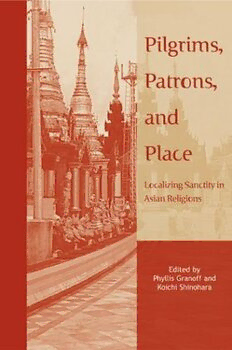
Pilgrims, Patrons, and Place: Localizing Sanctity in Asian Religions (Asian Religions and Society Series) PDF
388 Pages·2003·2.438 MB·English
Most books are stored in the elastic cloud where traffic is expensive. For this reason, we have a limit on daily download.
Preview Pilgrims, Patrons, and Place: Localizing Sanctity in Asian Religions (Asian Religions and Society Series)
Description:
This book brings together essays by anthropologists, scholars of religion, and art historians on the subject of sacred place and sacred biography in Asia. The chapters span a broad geographical area that includes India, Nepal, Thailand, Indonesia, and China, and explore issues from the classical and medieval period to the present. They show how sacred places have a plurality of meanings for all religious communities and how in their construction, secular politics, private religious experience, and sectarian rivalry can all intersect. The contributors explore some of the most fundamental challenges that religious groups face as they expand from their homeland or confront the demands of modernity. In every case the biography of a saint or founding figure proves to be central to the formation of religious identity. Sacred place becomes a means of concretizing the ever-expanding sphere of the saint’s influence. While some chapters deal with well- known religious movements and sites, others discuss little known groups and help to enrich our understanding of the diversity of religious belief in Asia. The book will be of interest not only to scholars of Asian religion and hagiography, but to others who seek to understand the ways in which religious groups accommodate to the challenges of new environments and new times.
See more
The list of books you might like
Most books are stored in the elastic cloud where traffic is expensive. For this reason, we have a limit on daily download.
